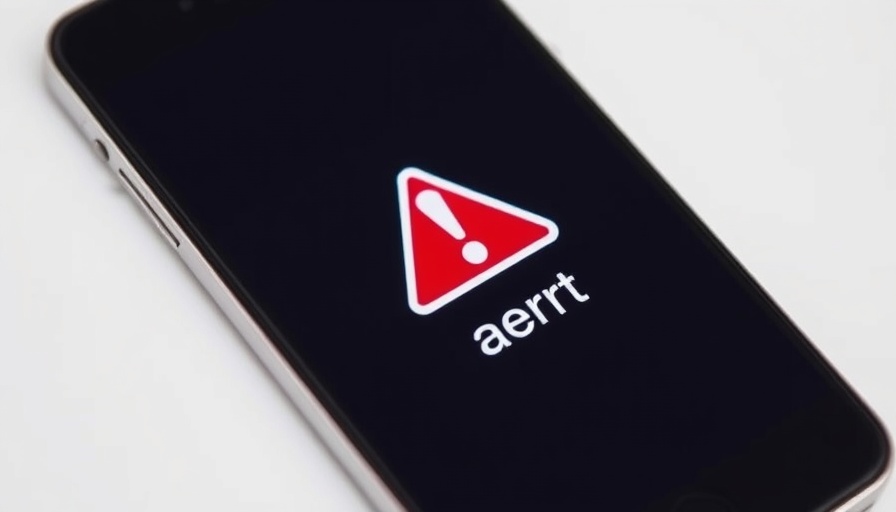
Scammers Exploit Fear with False DMV Texts
In today's digital landscape, scammers have become increasingly sophisticated in their tactics. One prevalent strategy involves sending threatening messages that impersonate authorities, like the DMV. These messages often warn recipients of unpaid fines or potential license suspensions, playing on the fear that many people have regarding their driving record. According to First National Bank, recipients have reported alarming texts claiming they need to resolve issues with their vehicle registration or face serious consequences.
Understanding the Mechanics of the DMV Scam
The scam texts vary slightly in wording but typically include urgent language that compels the recipient to act quickly—an effective strategy often used in scams. They often contain links to fraudulent sites designed to capture personal and financial information. To discern a legitimate communication from a scam, it's important to know that no legitimate DMV will send enforcement notifications via text message.
Red Flags to Identify Scam Texts
Identifying scam messages can sometimes be challenging. However, there are key indicators to watch for:
- The sender's number is unfamiliar or does not match government agency numbers.
- Messages contain poor spelling or grammar, which is uncommon in official communications.
- The language is threatening or urgent, pushing you to react without considering the message's legitimacy.
What to Do If You Fall Victim to a Scam
Even the most cautious individuals can occasionally overlook red flags. If you think you’ve responded to a scam, First National Bank recommends acting quickly—contact your bank to alert them of potential fraud, monitor your accounts closely, and consider placing a freeze on your credit. Reporting the incident to law enforcement can also help prevent others from becoming victims.
Protecting Yourself with Proactive Strategies
Being aware of scams is your first line of defense. One way to bolster your protection is through education—learning about common scams can arm you with the knowledge needed to avoid them. Additionally, utilizing identity protection services can offer peace of mind by monitoring your information.
Broader Implications of DMV Scams
This type of scam reflects a larger trend in fraud prevention concerning government communication. As the world becomes increasingly digital, people must realize that authentic communication can primarily occur through physical mail or at official channels such as government websites. Prioritizing legitimate channels not only protects personal information but encourages the use of secure information technology in governmental transactions.
Community Awareness and Education
Community forums, online workshops, and local seminars can serve as excellent platforms for educating consumers about avoiding scams. Engaging with your community can create a support network where suspicious activity can be shared and discussed, enabling individuals to stay informed and vigilant.
Rallying Together Against Scams
As members of a community, we can combat scams. Sharing experiences and knowledge, combined with regular communication with local authorities about prevailing scams, forms a solid barrier against fraudulent activities. Empowering one another through information ensures that fewer individuals fall prey to these dangerous tactics.
Fear should not dictate our actions, especially when it comes to protecting personal information. Knowledge is power, and with the right tools and awareness, we can navigate these challenges. Stay informed, stay aware, and together we can build a safe environment.
 Add Row
Add Row  Add
Add 




Write A Comment